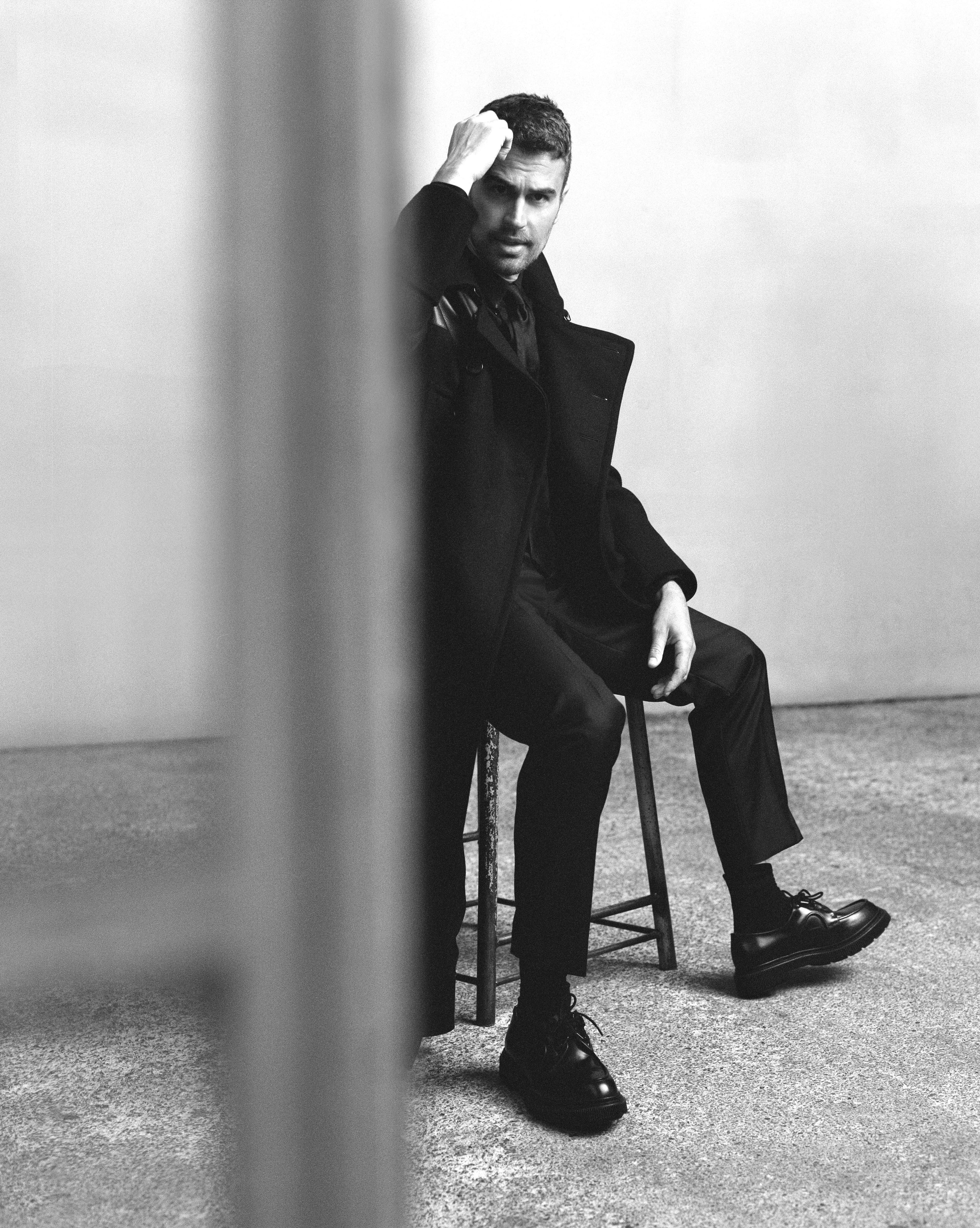
All clothing by Giorgio Armani. Tie and shoes by Adieu. Socks by Softop.
Theo James Does It All
Late last month, the cast of the second season of the HBO hit The White Lotus reunited in Los Angeles at the Screen Actors Guild Awards, where they picked up an ensemble prize on the latest stop of a long journey that began early last year in Sicily and will culminate, in all likelihood, at the Emmys this September. The win was certainly well-received, but for Theo James, the English actor who played the toxic finance bro Cameron, it was also just another opportunity to reconnect with his fellow cast members from the formative experience. “I really enjoyed being part of a big crew of people where you’re a small part, but you’re all as important as each other,“ he explains. “I found that really gratifying. We really bonded and had a lot of fun together.“
It may come as somewhat of a surprise to hear that James, who has been a leading man in a string of projects since the first Divergent film in 2014, embraces a group setting, but his years in the industry have demonstrated his abilities to channel his natural charisma towards the cause of a greater whole. In the latest season of The White Lotus, Mike White’s satire of the affluent and afflicted now set at a luxurious resort in Taormina, James’s Cameron is part of a convoluted quartet including his wife Daphne, played by Meghann Fahy, and his college roommate Ethan (Will Sharpe) and Ethan’s wife Harper (Aubrey Plaza). Initially billed as a reunion, it quickly becomes clear that the weeklong stay is in fact an elaborate game of oneupmanship, with Cameron moving to reassert his alpha status after Ethan’s newfound success in the tech world. Cameron’s behavior throughout is noxious and aggressive, but he is also often charming in his own way, a delicate balance that James said was essential to capturing the character. “There’s a sociopathic side to him,“ the actor elaborates. “He’s clearly highly manipulative, highly competitive, jealous. But then there’s an animalism and a boyish quality to him, which means, in a funny, existential way, there’s an innocence to him. Those two things sit next to each other very strangely and uncomfortably, but both of them are very true.“
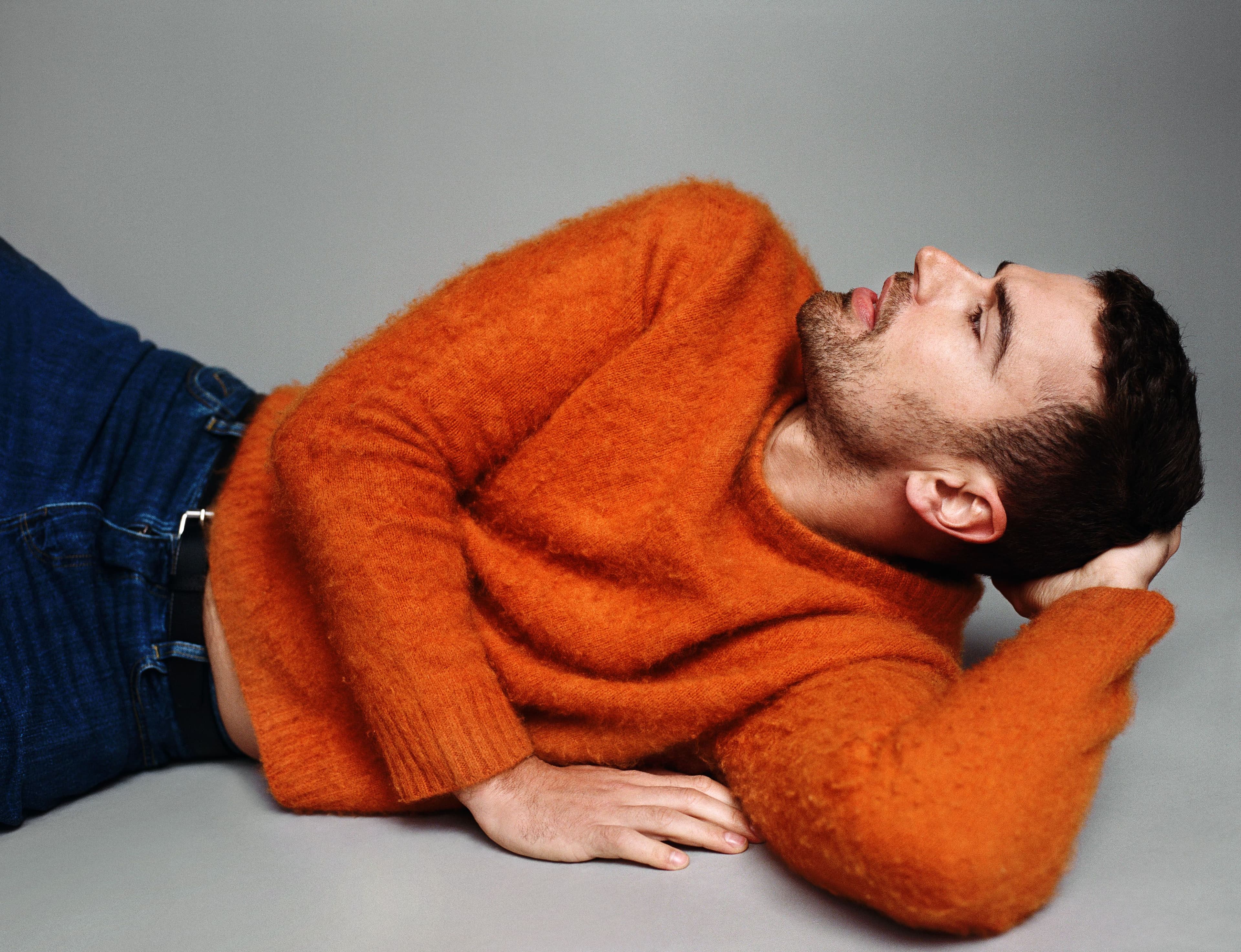
Sweater by Commission. Jeans by Studio Nicholson. Belt by Comme des Garçons.
For an actor more accustomed to playing romantic leads and noble heroes, Cameron offered James the welcome opportunity to exercise a different side of his talents. Brash, abrasive, and antagonistic, Cameron spends the week alternately seducing and belittling Harper, and ropes Ethan into a bacchanal of drugs and prostitutes while their wives are away for the night at a remote villa. James says he felt an instant and uncommon sense of recognition when he first read through the scripts: “I knew a version of this man, I’ve met people like that—and honestly, you don’t always feel like that. Sometimes you need to find an angle, a way in.“ As he came to understand Cameron more deeply over the course of the season, he also connected with him on a personal level. “There was part of myself, which was some of the humor, I hope, and that effusive side of him,“ he says. “I wanted him to be a mixture of the brash, repugnant side of what we see as the American dream, and then the great side of it—both literally and metaphorically. I wanted him to be both warm and tactile as well as domineering and invasive, both in space and presence, and those two things juxtapose each other. There’s definitely a warmth to him and a friendliness which I enjoyed, and then on the other side it’s toxic and manipulative.“
On a show where every character is critically flawed in their own way, Cameron and Daphne have stood out as particularly polarizing, both for the surprisingly nuanced gender dynamics in their own relationship but also the way they approach the world around them. The couple memorably argue about whether or not Daphne voted in the last election (she insists she did, while Cameron scoffs) and don’t follow the news, preferring instead to lock themselves in the gilded cage of their own privilege. “He couldn’t be too villainous, but he’s kind of the villain—or a villain,“ James says. “He represents a version of existence which means turning yourself off to the problems around you and just living in your own world. He and Daphne are very self-centered and apathetic.“ Still, the actor says there was intentionally something more complicated about them, which may help account for their ambiguous appeal. “At the same time, what juxtaposes them against the other couple is they live life for what it is. They love life and they take risks and they enjoy life. They live for every moment and they’re imbibing it and drinking from the fountain of their privilege at all times. There’s something quite elated and fun about them, they’re a good time to be around. We wanted them to be a good time, the type of people that you want to be around. You don’t necessarily want to be them, but you want to be around them and enjoy them.“
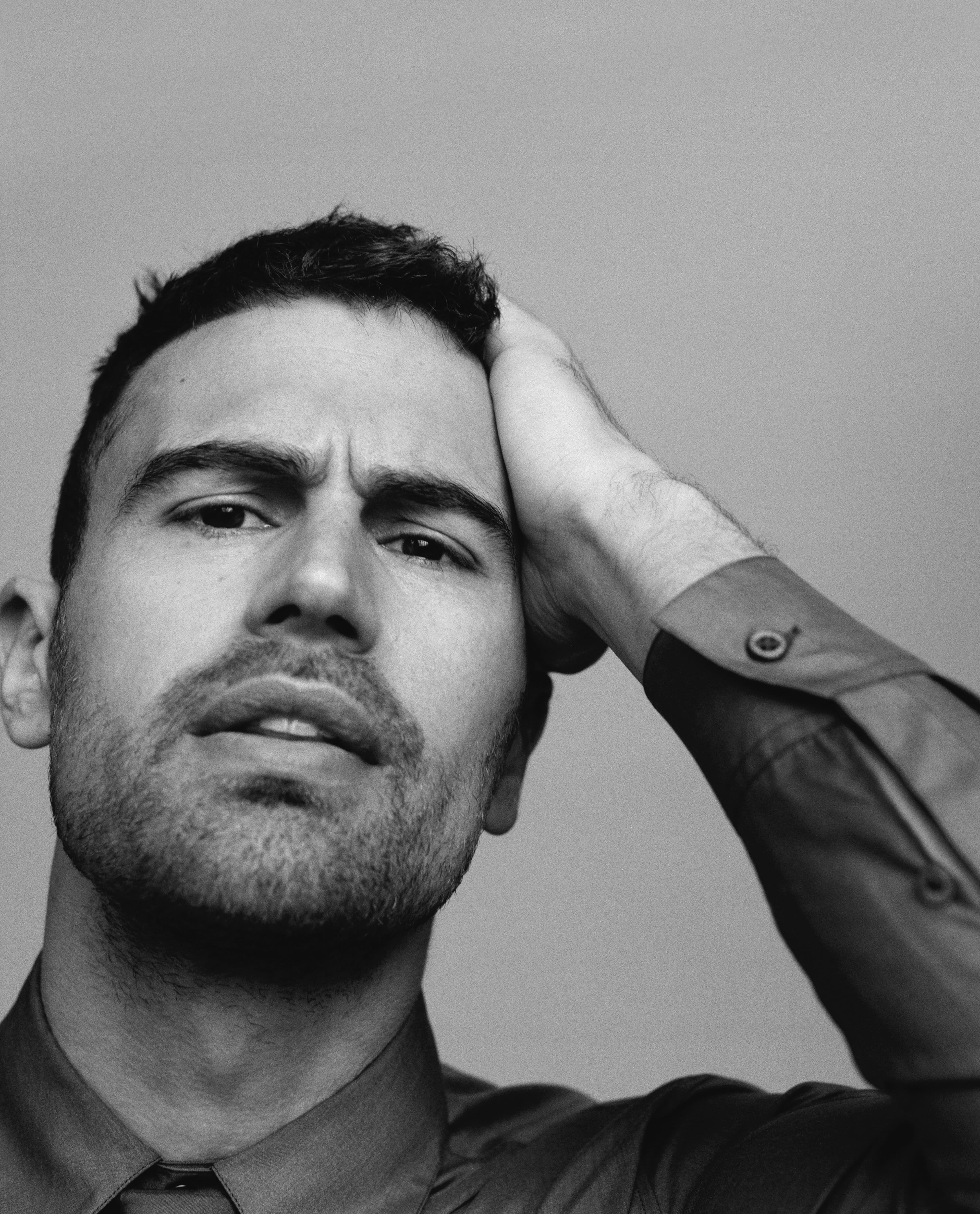
All clothing by Dunhill
After the overwhelming success of the show’s first season, James says that he and the rest of the cast braced themselves for the onslaught of attention. “Some of us were preparing ourselves for that second season over-analysis,“ he admits. “People are looking to find the cracks because it sells more columns sometimes. We were in a way expecting that, so it was really exciting and satisfying to see that people enjoyed it as much as the first season and were really knee-deep into the story and the complexities of it and the fun of the weekly discovery, in the whodunit sense, coupled with Mike’s deeper themes of class and sexual and gender politics.“ The actor reveals that he has only seen the first two episodes, “mainly because I don’t love watching myself much anyway,“ but the buzz around the show was inescapable, with weekly recaps and intense speculation after every episode. “You get messages from people you haven’t spoken to for years,“ he laughs, “or someone your mum knows who is desperate to know: Is Cameron going to stab someone in the face?“
Now wrapping up production as the lead in the upcoming Guy Ritchie series The Gentlemen in London, James says he is excited to be getting the opportunity to make the kind of work he wants. “Not all of it, but some franchise filmmaking is very box-ticking and it can be frustrating,“ he says. “As much as you pretend to have control, you obviously really don’t have any.“ Since his runs in the Divergent and Underworld series came to an end in 2016, he has also been making a mark behind the camera, serving as executive producer on a number of projects he has starred in, including the political thriller Backstabbing for Beginners and the PBS Jane Austen adaptation Sanditon, as well as last year’s Netflix documentary series Pepsi, Where’s My Jet? “As an actor, you’re ill-equipped in a way, you’re told to stand there and turn up here,“ he says. “I felt that I wasn’t being able to tell the stories or be a part of the films that I wanted to be a part of, and I was trying to kind of force the hand a little bit. Sometimes it worked, and sometimes it definitely didn’t.“
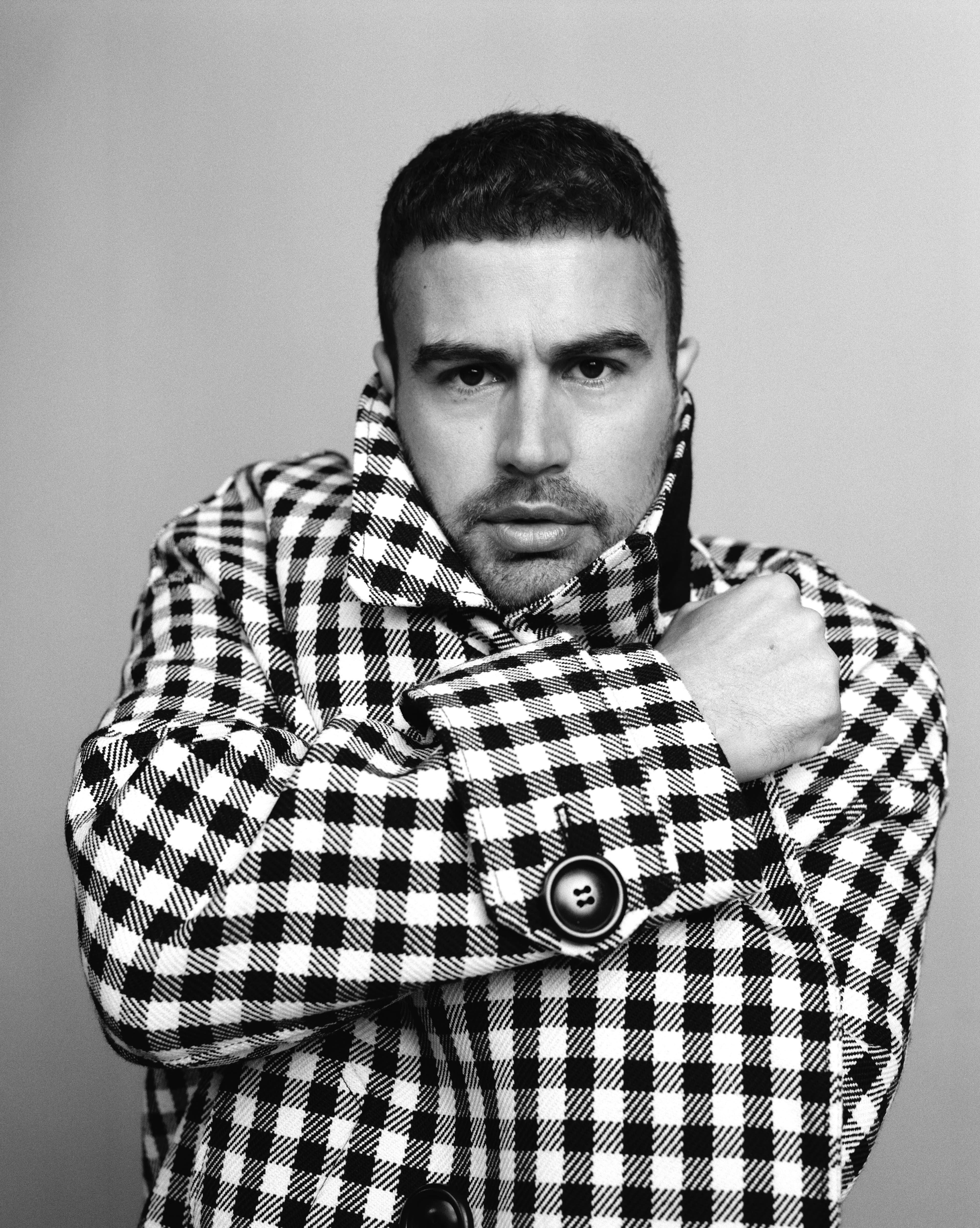
Coat by Ami Paris
Alongside his busy filming schedule, James also began to work with the United Nations High Commissioner for Refugees in 2016, inspired by the life story of his grandfather, who fled Greece after it was invaded by the Nazis and ended up in Damascus. “The idea was to try and raise some awareness and make people realize that history is very recent and we’re always moving and borders are constantly changing,“ he says. He traveled to Greece with the organization that year to meet with refugees and spoke out vehemently about the issue, which has taken on renewed importance with many European countries moving recently to tighten their borders even further as the immigration crisis broadens. “Honestly, it’s a tricky one because, on one hand, you want to do anything you can that would be helpful and bring light to an issue,“ he admits, “but at the same time actors, or whoever, pontificating on a subject that they haven’t been knee-deep in can sometimes be a bit funky. I wanted to try and make it personal in some way.“
As for what the future holds in terms of his career, James says he is open to anything enticing that may come his way. After his experience on The White Lotus (which, despite being entered in the Drama category at this year’s Emmys, thrums with White’s particularly bleak and sardonic sense of humor), he says, “I think I would love to do more comedy. I loved the experience. I haven’t done it for a long time and I would love to do more. There’s something really freeing about it.“ Still, the actor admits that he continues to find himself drawn to serious drama as well and is eager for anything that will challenge himself further. “I always am interested in the deepest, darkest stories,“ he adds. “I really like things that have either a true story or have some semblance of truth.“
The White Lotus is now streaming on HBO Max.
As a nonprofit arts and culture publication dedicated to educating, inspiring, and uplifting creatives, Cero Magazine depends on your donations to create stories like these. Please support our work here.
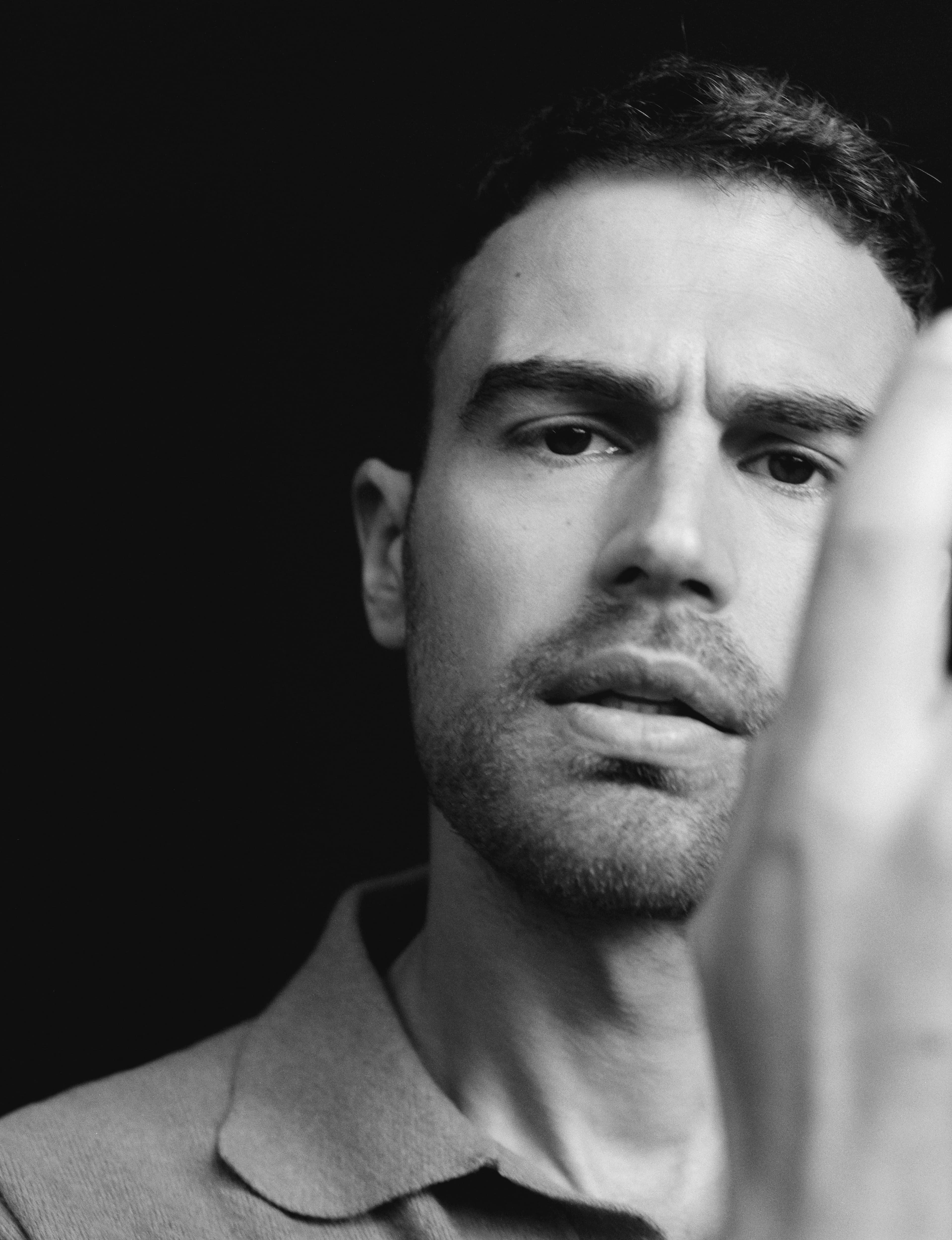
Top by Commission
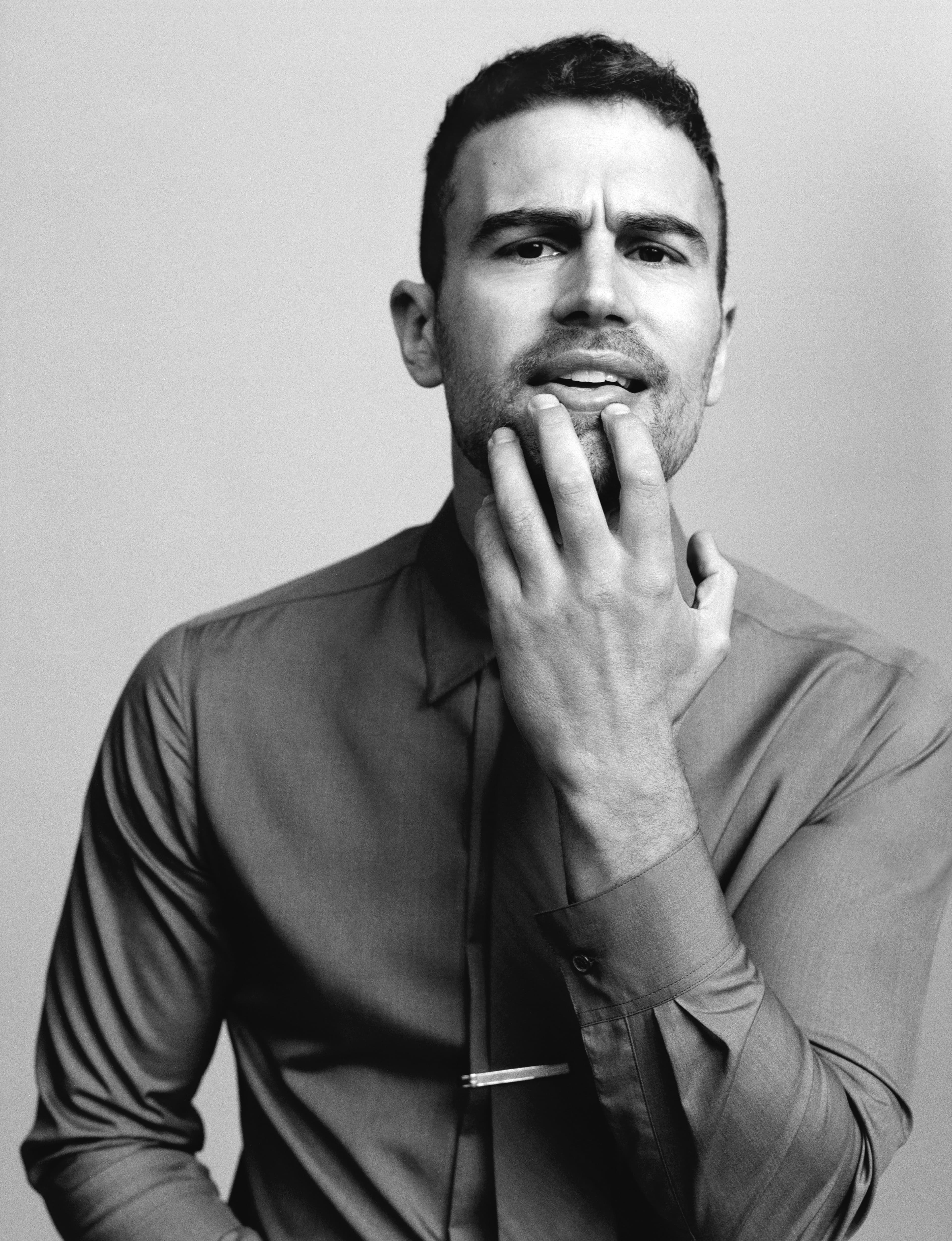
All clothing by Dunhill
As a nonprofit arts and culture publication dedicated to educating, inspiring, and uplifting creatives, Cero Magazine depends on your donations to create stories like these. Please support our work here.






